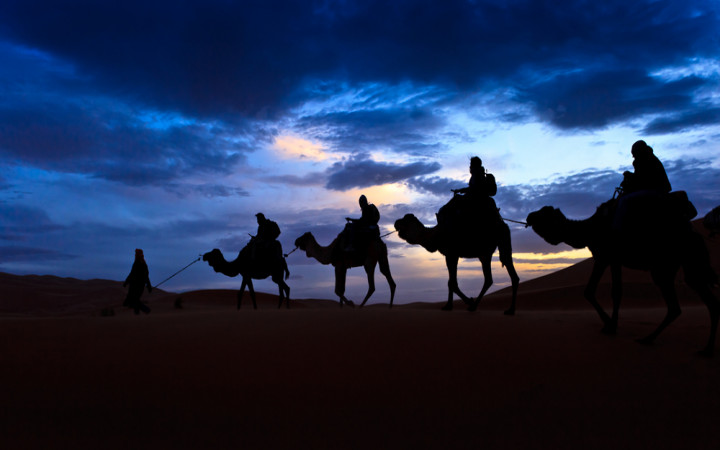Today’s Wonder of the Day was inspired by craig. craig Wonders, “What is a nomad” Thanks for WONDERing with us, craig!
Do you like to stay at home? Or do you like to see new places all the time? If the latter sounds like you, maybe you could be a nomad.
Nomads are people with no fixed home. They travel from place to place. Many nomads move as the seasons change. They move in search of food, water, and places for their animals to eat.
The word “nomad” comes from a Greek word meaning “roaming about for pasture.” Some cultures around the world have always been nomadic. In today’s industrialized countries, nomads are few and far between. However, there are still 30-40 million nomads around the world today!
Nomads are usually divided into three categories. There are hunter-gatherers, pastoral nomads, and peripatetic nomads. Hunter-gatherers are the oldest type of nomad.
As their name suggests, hunter-gatherers move about frequently. They search for wild fruits, vegetables, and animals that change with the seasons. All human beings were hunter-gatherers until about 10,000 years ago.
As people began farming, there was less need to move about. Today, there are very few hunter-gatherer groups. Those that do exist also farm and raise animals.
Pastoral nomads raise large herds of animals. When the animals eat all of the food in one area, they move to a new one. This gives the pastures time to grow new food.
Pastoral nomads usually stick to a specific area. The area they roam can be hundreds of square miles. They choose one spot to live in for weeks or months. Then, they set up portable, wood-framed houses called yurts.
The only types of nomads you’re likely to find in industrialized nations are peripatetic nomads. These nomads travel frequently. They participate in businesses that move from place to place. One example of this is people who work for the circus.
Do you live a nomadic lifestyle? Or do you stay in a permanent home? Whatever your way of life, anyone can benefit from seeing more of the world. If you could move to live anywhere else in the world, where would it be?
Standards: C3.D2.His.2, C3.D2.Geo.7, C3.D2.Geo.8, CCRA.L.3, CCRA.L.6, CCRA.R.1, CCRA.R.2, CCRA.R.4, CCRA.R.10, CCRA.W.1, CCRA.W.2, CCRA.W.9, CCRA.SL.1




